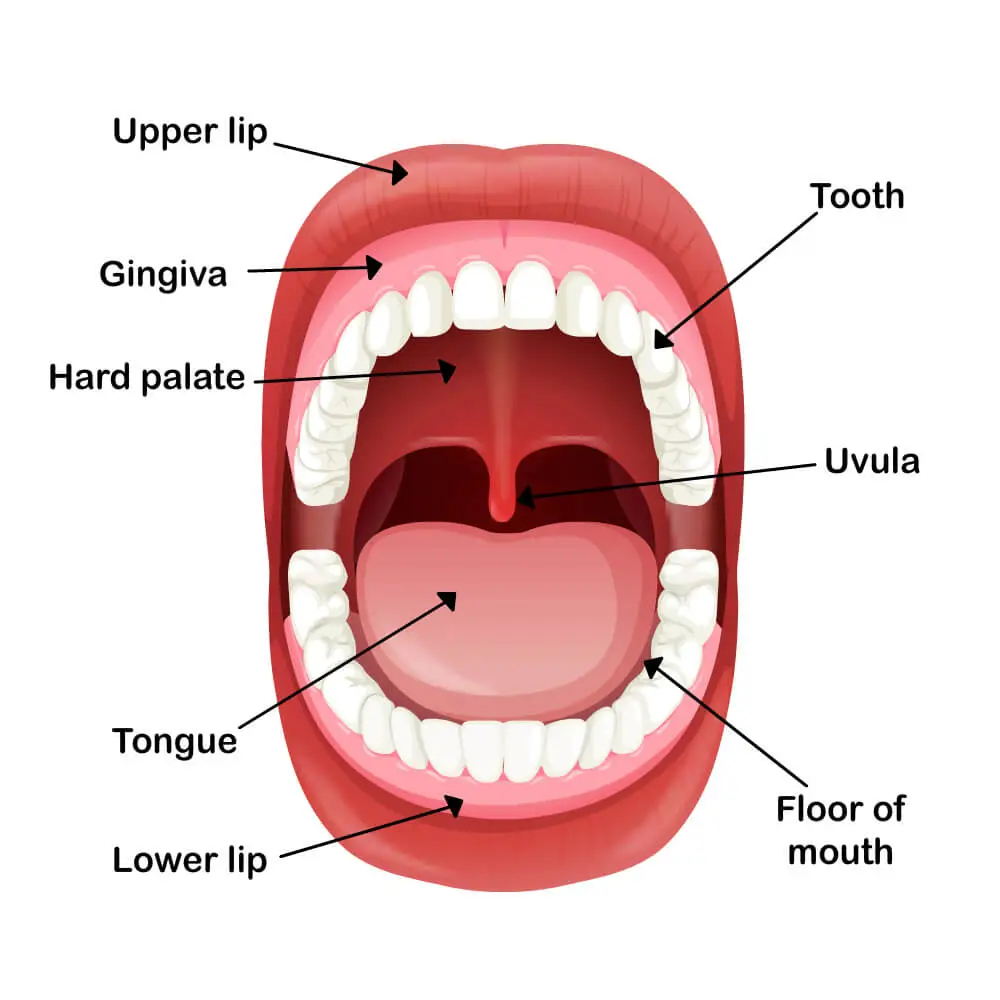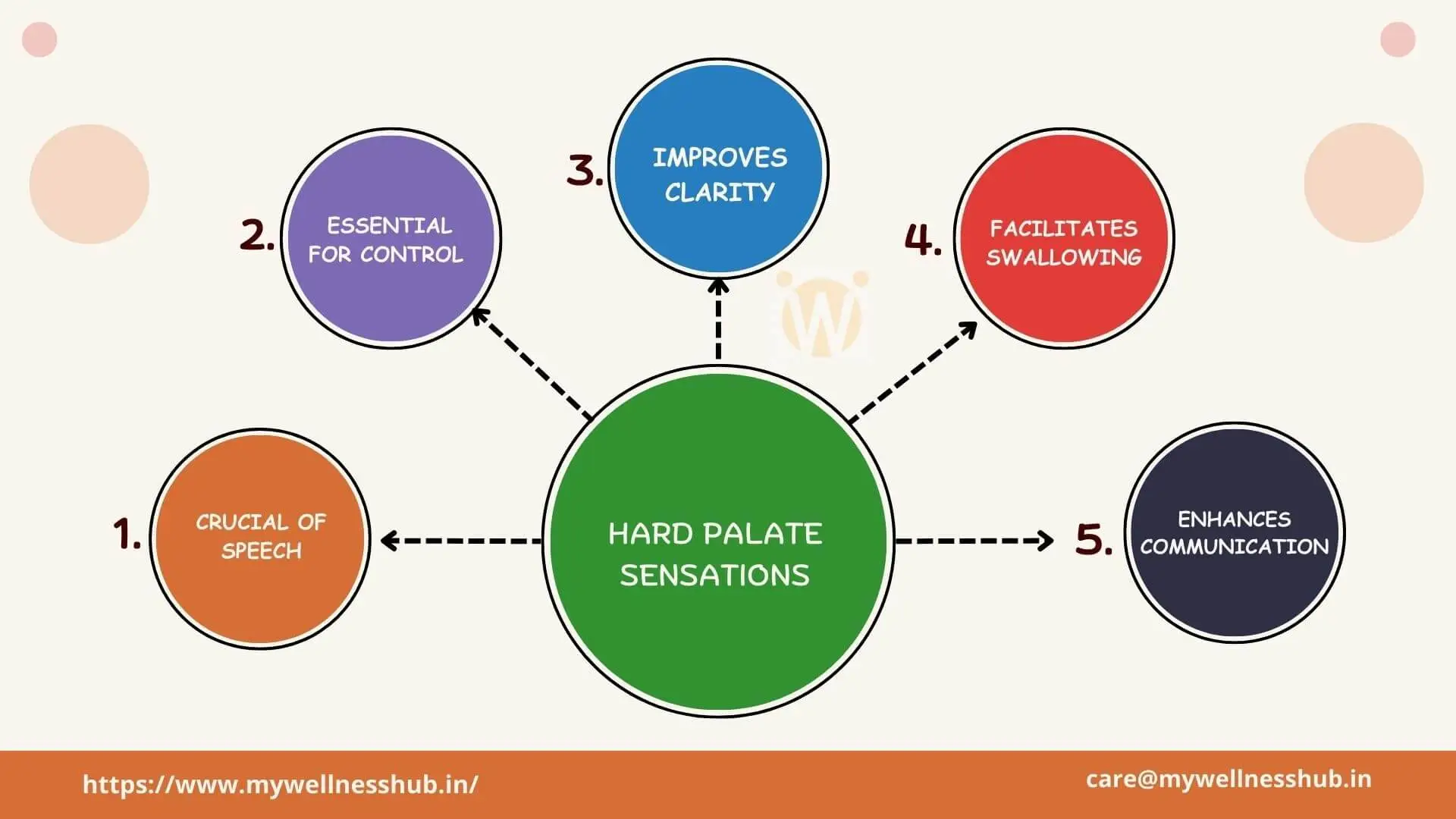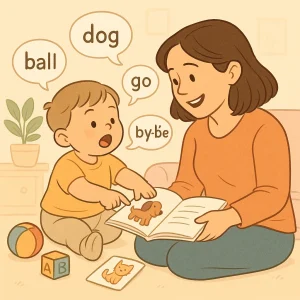Oral Motor Exercises: Improve Hard Palate Sensations for Speech
By Rajini D
Last Updated: November 17, 2023
Speech and language production requires the coordination of various parts of the mouth. Some of the words and speech sounds are produced with the support of the hard palate and soft palate. It is necessary to improve the sensations of the hard palate, which makes it crucial for the development of speech and language skills in individuals. If the sensations are not felt by an individual, the knowledge relating to the production of speech sound will not be understood. So, it is important to have a detailed look at the exercises that focus on improving the sensations of hard palate.

The exercises that improve the sensations of the hard palate are crucial for individuals who have difficulty perceiving or producing speech sounds due to decreased sensory awareness in the hard palate. The hard palate plays a significant role in the production of certain speech sounds and in oral motor coordination. Hence, it is beneficial to enhance the sensations of the hard palate.
Why are Hard palate sensations necessary?

Articulation:
Some of the speech sounds require contact between the tongue and the hard palate. It is highly essential to have sensory awareness of the hard palate for speech and language development in individuals. Improving hard palate sensations can result in clearer and more precise articulation of sounds like /t/, /d/, and /k/.
Oral motor control:
Oral motor control is necessary for the coordination and production of required speech sounds. Sensory input from the hard palate presents good oral motor control. It influences the movement of the tongue and the coordination between articulatory structures during speech production. For achieving effective control over speech movements and improving oral motor coordination, practicing the exercises targeting the sensations of the hard palate is highly important.
Speech clarity:
When an individual needs to produce certain speech sounds, one should become more aware of specific movements and placements necessary to produce those accurate speech sounds. To achieve such accuracy, a heightened sensation of the hard palate can help a lot. It can contribute to clearer and more intelligible speech.
Swallowing and feeding:
It is necessary to have the sensations of the hard palate for proper swallowing and feeding. The exercises that help enhance the sensations of the hard palate can lead to better control during swallowing and feeding activities.
Overall Communication skills:
In order to have effective overall communication skills, it is necessary to have good articulation and oral motor coordination along with better speech production. To achieve all this, strengthening the sensation of the hard palate is very important. An individual with enhanced sensory awareness can have increased confidence in communication and facilitate effective interactions in social and academic settings.
How to improve the sensations of the hard palate?
Here are some techniques to improve sensations of the hard palate for speech development.
Palatal stimulation
Use a clean finger or a specialized oral motor tool and gently provide tactile stimulation to the hard palate. Massage the hard palate or lightly tap it to increase sensory awareness. This encourages sensory feedback during speech production.
Start massaging from the anterior part of the hard palate to the posterior part of it. Ensure that the soft palate doesn’t get affected. Do not place the device very close to the child’s mouth, as it might interfere with breathing. Objects like spoons, toothbrushes, and cotton buds that have long ends should be used for massaging. While massaging, the soft edges of a plastic spoon should be used. Make your child open the mouth wide and gently stroke the spoon back and forth at a slower pace to make the palate sensitive.
Read more: Mastering Palatal Sounds in Children: A Parent’s Guide
Temperature and texture exploration:
It is important to introduce various temperature and texture sensations to the hard palate. It can be done by incorporating various foods and liquids with different properties, such as hot and cold temperatures, smooth and rough textures, and varying tastes. This practice can help improve sensory awareness and stimulate sensory receptors in the hard palate.
Oral motor exercises:
The muscles of the hard palate and the surrounding areas should be strengthened, for which specific oral motor exercises can be practiced. These exercises include palate lifts, tongue movements, and other activities that gain muscle strength and coordination. With these exercises, sensory feedback production can be enhanced in the hard palate.
Vocalisation techniques:
Practicing the vocalization techniques with a conscious engagement of the hard palate during speech production is necessary. Individuals should be encouraged to focus on the placement of the tongue and the contact with the hard palate while producing specific sounds and words. This observation can improve sensory awareness of the hard palate in speech production.
Speech therapy:
Having an evidence-based speech therapy plan under the guidance of a speech-language pathologist would help in achieving targeted results. A speech therapist is a trained professional who can provide specialized exercises and techniques to improve sensory awareness and speech development. These specialists can offer custom-tailored therapy plan to address specific sensory issues related to the hard palate and facilitate effective speech production.
Learning to Articulate:
All these exercises would develop an awareness of the tongue touching the hard palate. This will help your child to learn the place of articulation, which means the placement of the tongue to produce a certain speech sound. For example, if the child tries to pronounce /t/ sound, he/she should learn to lift the tongue, touch the palate, and then release it with a burst.
In case the child doesn’t have such awareness, he/she will not know how to make a sound. Hence, it is important for the child to learn the place of articulation, which can be achieved through exercises that make aware of the sensations of the hard palate.
For effective speech and language development in individuals, it is highly beneficial to incorporate specific exercises and techniques targeting the sensation of the hard palate.
Having such exercises under the guidance of a trained speech-language pathologist who can provide tailored interventions and support enhances sensory awareness and improves speech production in individuals.
Consistent practice and guidance from a speech professional can be instrumental in providing the sensations of the hard palate and promoting effective speech development.
Book your Free Consultation Today
Parent/Caregiver Info:
Client’s Details:
* Error Message









